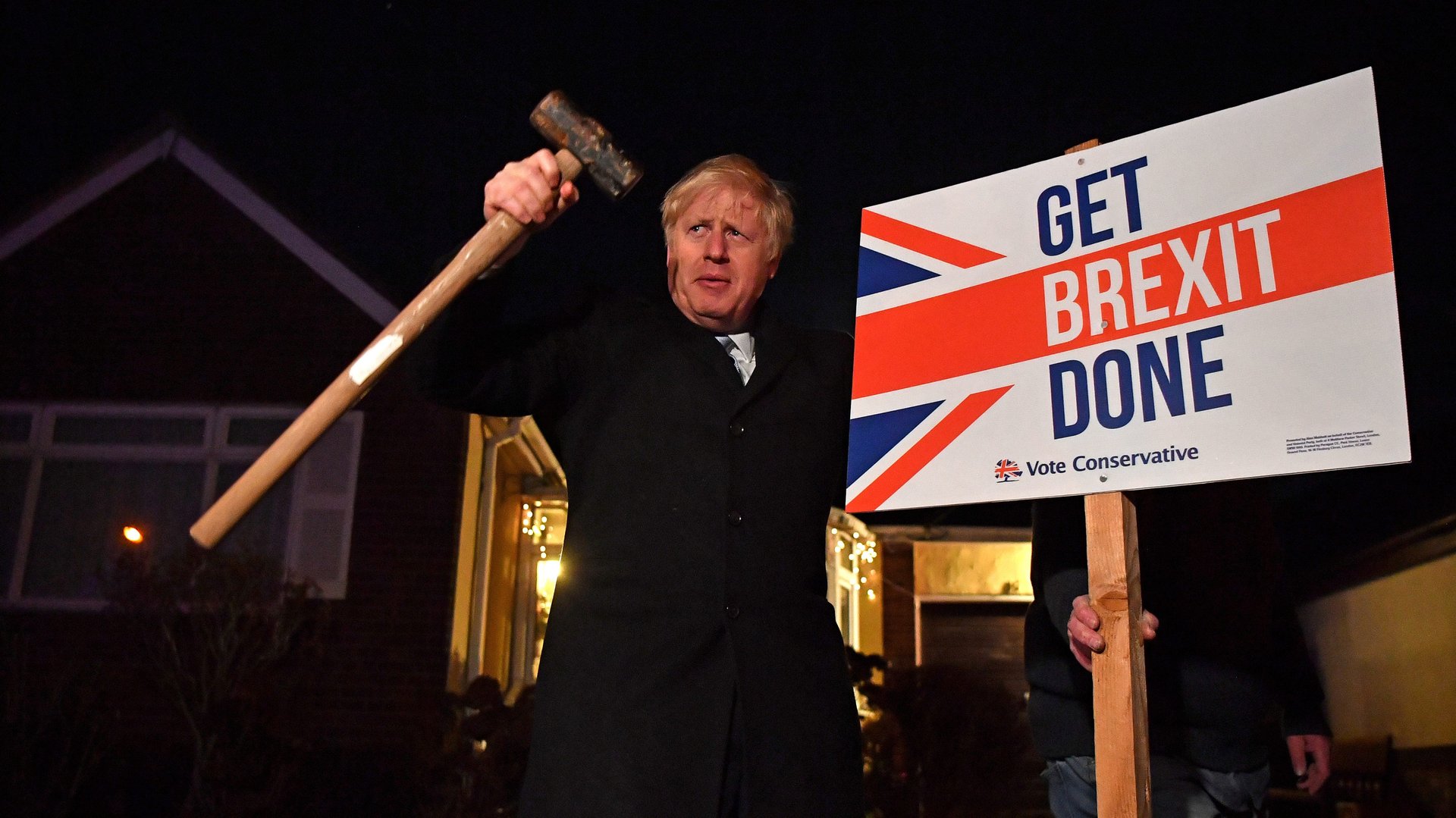Brexit has reversed a decades-long drop in the size of the UK’s civil service
The UK government has for years steadily reduced the number of civil servants on its payrolls. But after its ranks sunk to their lowest level in the post-war period, those numbers have ticked up every quarter since Brits voted in June 2016 to leave the EU.


The UK government has for years steadily reduced the number of civil servants on its payrolls. But after its ranks sunk to their lowest level in the post-war period, those numbers have ticked up every quarter since Brits voted in June 2016 to leave the EU.
That’s in part because the government needs people to help devise Brexit policies and, now that prime minister Boris Johnson has struck a deal with the EU, implement them. The Institute for Government, a UK think tank, yesterday released its annual Whitehall Monitor report (pdf), which tracks government performance. The report noted that around 25,000 civil servants now work directly on Brexit matters.
That sum is more than the combined size of the nine smallest UK government agencies, the report said. Most of these workers were recruited as policy professionals, since planning for the UK’s departure from the EU took precedence during the past three years. Now the government will need to rely more on civil servants who can actually implement Brexit.
Not all of these government workers were new hires. Ahead of the original Brexit deadline in March 2019, for example, 4,000 workers across five departments were transferred to plan for a potential “no-deal” scenario, as then-prime minister Theresa May struggled to win backing for the deal she struck with the EU. Another 2,000 civil servants began shifting to Brexit-related work this past summer in preparation for the subsequent Oct. 31 deadline, which was pushed back again to Jan. 31.
Lord Kerslake, former head of the UK civil service, in July called the personnel shifts “quite extraordinary.” He added that the “disruptive effect” would be significant and contribute to a general state of “paralysis” in Whitehall at that time.
These major personnel movements may also be contributing to workplace stress among civil service workers. About 2.5% of them report stress, anxiety, or depression, according to the Health and Safety Executive, the government agency tasked with overseeing workplace health in the country. That’s significantly higher than the 1.4% average across UK industries.